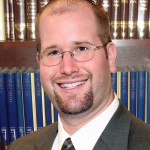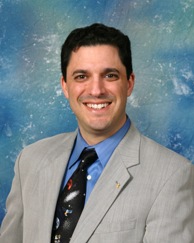Guest Posts
Following is a Q&A between Religion Transcends and the new president of American Atheists, David Silverman.*
Q. I cover several religious holidays on Religion Transcends. What do Atheists do during holiday seasons?
A. The reason for the season is the season itself. The Winter Solstice has been observed with celebration since man first figured out that it was the shortest day of the year. After all, what better reason is there to celebrate?
Q. Do you celebrate any other “observances” that could be considered holidays?
A. As you know, the term atheist is very broad. Some atheists, especially Secular Humanists, celebrate HumanLight, which is a festive solstice celebration with most of the traditional trappings. Some, like myself, huddle in the corner until the whole season passes.
Q. What is the biggest misconception about Atheists/Atheism?
A. That we are few in number. Most polls show the nonreligious people hovering at around 15%, which is more than Jews, Muslims, Hindus, and Buddhists, combined, and doubled. The problem is that most of these atheists are closeted, at least to some extent, and as a result most religious people think we are an insignificant minority.
A portion of that comes from the problem within the secular community. If you as a Methodist his religion, he’ll say “Christian.” if you as a Lutheran, he will also say “Christian.” Presbyterian? Christian. But if you ask an agnostic, which is a type of atheist, he’ll say “Agnostic”. The same goes for Secular Humanists, Brights, and, rationalists. But they are all atheists! So again, we are perpetuating the misconception that atheists don’t exist by avoiding the A-word.
Q. Were you surprised by the results of the recent Pew Forum survey?
A. I was not at all surprised. As an atheist, I get challenged on my religious knowledge all the time, usually beginning with “have you ever read the bible?” and moving on from there. Religionists tend to quiz me to see if I know what I am talking about, and this happens very often. As a result of interactions like this, atheists are more incented to research the religions in which they do not believe, which in turn leads to a firmer atheism.
On the other hand, religious people are typically discouraged from learning about other faiths, and very often they know very little of their own. Most have not read their bible, and as a result live a life of obedient ignorance — which is exactly what the religious leaders want.
Q. “Hard-liner” Atheists (or aggressive Atheists as some might say) like Richard Dawkins often don’t just lack a belief in God. They also tend to take issue with/aim at organized religion. In light of that, are Atheists open to learning about religions? Is there something positive to be gained by understanding what religious folk believe?
A. There is no more value in learning about Christianity [for example] than there is in learning about any other Greek mythology, and Greek Mythology is better literature. Once religion is understood, there is nothing more to gain, and no great lessons to learn. Really.
*David Silverman has been an atheist since he was six years old. After a Jewish upbringing, he became an “out-and-proud atheist,” debating other students in college, one of whom he married. He became an activist in 1996 and was soon named NJ state director for American Atheists. Several years later, he was named national spokesperson, and eventually vice president. Now, as president, he has grabbed the reins of the organization he loves and hopes to one day adequately fill the shoes of its founder, Madalyn Murray O’Hair.
Created by Religion Transcends, 2010
 Following is a post from guest blogger, Rabbi Jason Miller. Visit his blog at http://blog.rabbijason.com.
Following is a post from guest blogger, Rabbi Jason Miller. Visit his blog at http://blog.rabbijason.com.
Tonight begins the festival of Shavuot, the holiday in which the Jewish people celebrate the revelation of the Torah at Mt. Sinai. Perhaps, the questions about the revelation of the Torah (when, what, how, if, and to whom) are the questions that divide the Jewish people today more than any other questions. The divisions among the modern denominations of Judaism all stem from the question of how the Torah was revealed to the Jewish people. The way in which individuals in the Jewish community consider the event that occurred at Mt. Sinai several millennia ago has vast implications for their approach to the Jewish faith. The sheer magnitude of that event, however, should force us all to transcend denominational differences and feel the power of community – whichever community we choose.
Never has the spiritual force of revelation affected me more than it did on the early morning of May 31, 1998. I had recently graduated college and was spending Shavuot at a local synagogue, where I served as the youth director. The assistant rabbi decided that the congregation would offer an all-night Tikkun Leil Shavuot (study session) and then a dawn service just before 5:00 in the morning.
It was a memorable night with many opportunities for Torah study with several wonderful teachers including three eighth-grade day school students. With delicious snacks and caffeinated beverages, about thirty of us managed to stay up the entire night. We decided to hold the minyan outdoors in the courtyard so we could enjoy the sunrise while we prayed.
The Torah service that morning took on new meaning for me. The Torah was paraded around and I had the sense that we really were at Sinai claiming what God had lovingly gifted to us. As I stood at the Torah for my aliyah, the sky began to get dark again. The Torah reader pronounced, “On the third day, as morning dawned, there was thunder, and lightning…” As the words “thunder” and “lightning” were uttered, a huge thunderstorm ensued. The Torah reader managed to get out a few more words, chanting “…and a dense cloud upon the mountain, and a very loud blast of the horn; and all the people who were in the camp trembled. Moses led the people out of the camp toward God, and they took their places at the foot of the mountain.”
At that point, the sky opened up and the heavy rains began. We grabbed the Torah and ran inside where the Torah reading was completed. As I wiped the raindrops from my glasses, I remember thinking that this must be divine revelation. This was the epitome of holiness. This existential experience was full of awe and majesty, thunderclaps, and lightning bolts. Best of all, it was shared with community.
This was a liminal moment in my life. That experience has had a lasting effect on my life in the decade since. Being shaken by the thunder, seeing the lightning, and hearing the words of our Torah convinced me that I really did stand at Sinai. We were all there together. As a community.
That was my revelation. What was revealed to me? The power of community. Was I really at Mt. Sinai several thousand years ago? Maybe not physically there, but with this community, during that early morning storm it was as if I were there. And that is the message of Sinai. A community gathered to receive a gift from God. How that gift is interpreted thousands of years later should not take away from the magic of that moment.
At a time when some segments of the global Jewish community do not recognize other segments as Jewish, let us put aside our denominational differences and hearken back to Sinai. One Torah was given to the entire community. Let us stand again at Sinai with our brothers and sisters, and feel the power of community.
Rabbi Jason Miller was ordained as a Conservative rabbi by the Jewish Theological Seminary in 2004 where he was the first Gladstein Rabbinic Fellow and also received a Master’s Degree from the William Davidson School of Jewish Education. He is currently the Rabbi of Tamarack Camps, a Jewish camping agency. Additionally, he serves as the director of ATID (Alliance for Teens in Detroit), a Conservative Jewish high school program for teenagers in Metro Detroit, and leads Congregation T’chiyah. He serves on several committees of the Jewish Federation of Metropolitan Detroit and is a board member of JARC, a community-based Jewish residential services agency for individuals with developmental disabilities. He is an alumni of the STAR Foundation’s PEER (Professional Education for Excellence in Rabbis) program, which focuses on spiritual leadership, communication and practical skills for non-profit management. He is also a fellow in CLAL’s Rabbis without Borders fellowship. Rabbi Miller writes and lectures about modern technology’s effect on Jewish life, particularly the impact of the Internet on the global Jewish community. His blog is at http://blog.rabbijason.com; follow him on Twitter.com: @rabbijason.
Copyright 2009, Religion Transcends


































